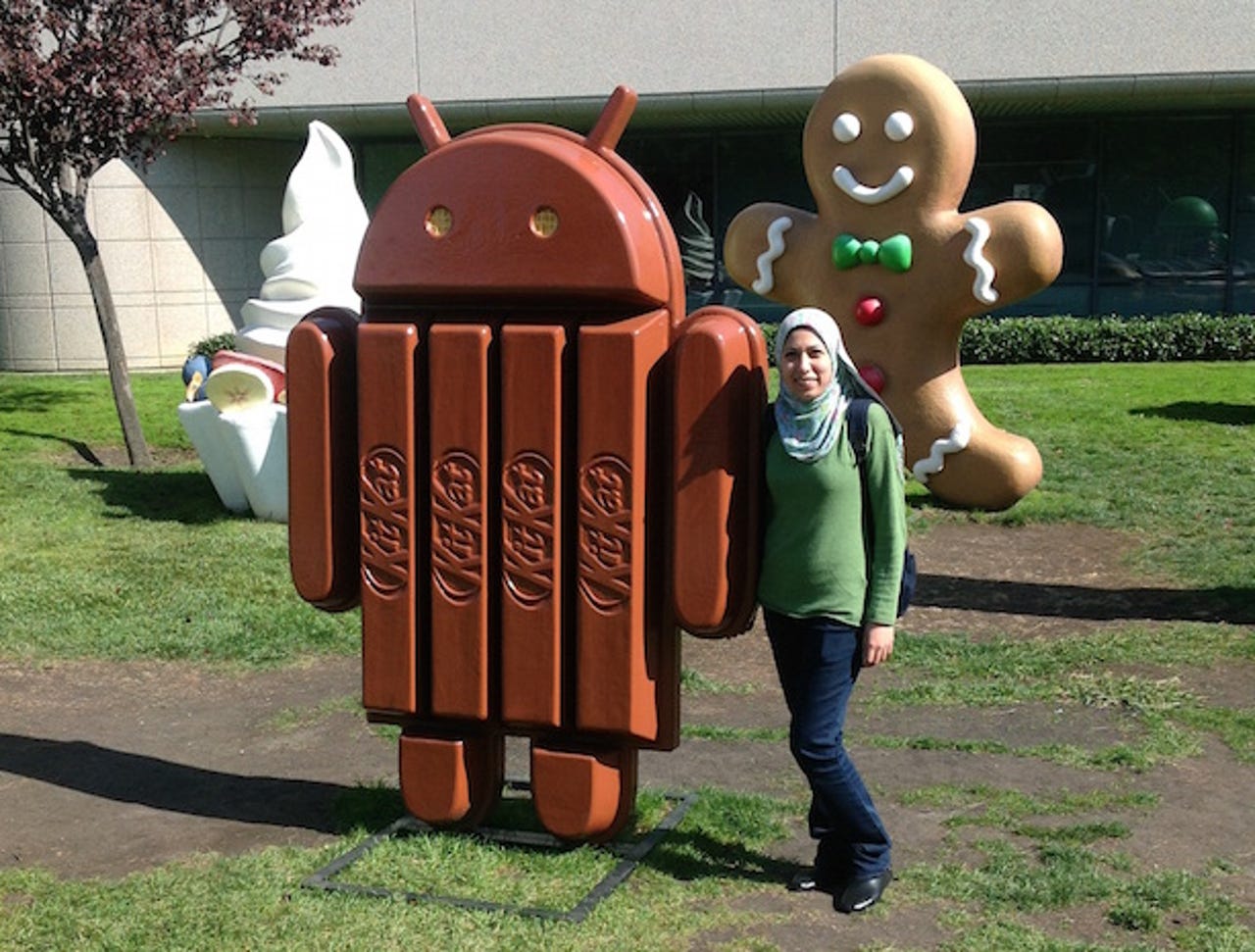'Five weeks were just the beginning': The US scheme to back Middle Eastern, African women in tech


Open to female professionals from 21 countries, the TechWomen scheme offers an intensive five-week programme where participants work alongside those from the US tech industry, grow their own professional networks, and learn more about US culture and society.
The programme is focused on a number of different tech areas: green technology, hardware, internet, science, software, and telecommunications.
Origins
"[It was] developed in response to President Obama's efforts to strengthen relations between the United States and the Middle East and North Africa," Mara Tekach, deputy assistant secretary for professional and cultural exchanges at the US Department of State, told ZDNet. "The business case for TechWomen is clear."
"It's an opportunity for women - both in the United States and throughout the world - to create connections that inspire ideas and innovation, elevating their economic impact as a result," she says. "When women and girls are educated and fully functioning members of the workforce, everyone - from families, to businesses, to community leaders - benefits."
Rapid expansion
TechWomen was launched by the former secretary of state Hillary Rodham Clinton in April 2010. Summer 2011 saw its first intake, with 37 participants from Algeria, Egypt, Jordan, Lebanon, Morocco, and the Palestinian Territories. Since then, the scheme has quickly grown.
To date, 233 women from 16 countries have taken part in the scheme - which is managed by the Center for Women's Leadership Initiatives (WLI) at the Institute of International Education (IIE) - with support from 330 tech mentors from 200 Silicon Valley companies.
The numbers are likely to rise following the expansion of the scheme in 2015. Now women from the emerging markets of Kazakhstan, Kyrgyzstan, Tajikistan, Turkmenistan, and Uzbekistan are being encouraged to apply for the first time.
A mentor-led experience
Winning a place in the programme is highly competitive. Successful applicants are paired with female mentors from technology companies - including startups, nonprofits, and large companies - based in Silicon Valley and the San Francisco Bay Area. Previous host institutions have included Cisco, Code for America, eBay, Ericsson, LinkedIn, and Nasa.
Participants then work together on a collaborative project at the mentor's company.
"The moment I saw the Lockheed Martin station sign in Sunnyvale, en route to my host company Juniper Networks, I realised that dreams can come true," Gamilah Al-Qadhi, a 2014 participant from Yemen, said.
Rajaa Khouimi from Morocco shares Al-Qadhi's enthusiasm. "Having the chance to meet interesting, experienced, and highly skilled women working in the US was really amazing."
Changing perceptions
Many mentees have subsequently set up their own mentoring programmes or launched similar initiatives, including TeenPreneurs Egypt; a STEM Career Expo in Johannesburg; and eSTEM Morocco, which seeks to "inspire a girl to change the world" by altering "how thousands of Moroccan girls think about science, technology, engineering and math," according to a programme presentation.
"Things that in the past sounded impossible to achieve for me are now doable," Algerian TechWomen participant Baya Chekired said. "I had never thought before that mentoring can have such a great impact on people."
Benefits for the Californians
TechWomen lets participants "gain varied perspectives on how we do things in the US, and which practices may be adaptable to their own careers and lifestyles," the US Department of State's Tekach said.
As a result, although the programme supports the US' drive to improve the rights and participation of women across the globe, it has also unlocked benefits closer to home.
Jennifer Sherman, who was working at Oracle when she volunteered as mentor back in 2012, recounted how introducing her Lebanese mentee to fellow female executives gave them both an insight into "how they were making decisions about their careers and their lives".
"It was great to get that glimpse for myself too," she says.
A lasting legacy
The scheme is designed to have an impact beyond its five-week duration. "TechWomen is more than a programme," Tekach told ZDNet. "The change of consciousness [we see] among participants sets the course for lifelong contact and project development."
And in an age of diplomatic soft power, the fact that initiatives like TechWomen give women leaders from the Middle East and North Africa (MENA) a favourable view of the United States can't hurt either. Eighty-six percent of 2013's cohort revealed they had more positive views of American people following their visit.
The impact of the programme can be seen in the promotions the MENA participants receive once they return to their companies, the new businesses they launch, and the opportunities that participants go on to create for others back home.
TechWomen 2012 graduate Evelyn Zoubi - who is currently based in the Bay Area - last month launched a business caled eCloset.me. Operating under the name Glanse, the fashion discovery app uses Tinder-like gestures (swipe to the right if you like an item, swipe to the left if you don't). Users can swipe through clothes on sale from 1,500 brands, showing female shoppers which items are in stock in their size.
Others have launched projects in their home countries: Jordan-based Hanan Khader has set up an online real estate platform called Aqar-Estatel; five Zimbabwean TechWomen alumnae established the startup incubator TechWomen Zimbabwe; and Nassima Berrayah co-organised the female-only Startup Weekend Algeria, which saw 24 ideas pitched and 10 projects formed.
The future
To maintain the momentum, both participants and US mentors are encouraged to reconnect when they travel overseas and to join TechWomen alumnae groups.
Egyptian participant Essraa Abbas believes building lasting relationships is important. "The main thing I learned was the power of connections. I connected with people who have the right skills to help me later on in my startup journey," she said.
Jill Wetzler, from Twitter, feels the same way. "I knew I was going to make connections with women from other cultures and other countries," she said. "What I didn't anticipate was the lasting friendships and network connections I would make with technical women in my own backyard."
For women like Essraa, TechWomen does not end in California; it's part of a longer journey which enables professionals to build bridges beyond any geographic or cultural divide.
Read more from the Middle East and Africa